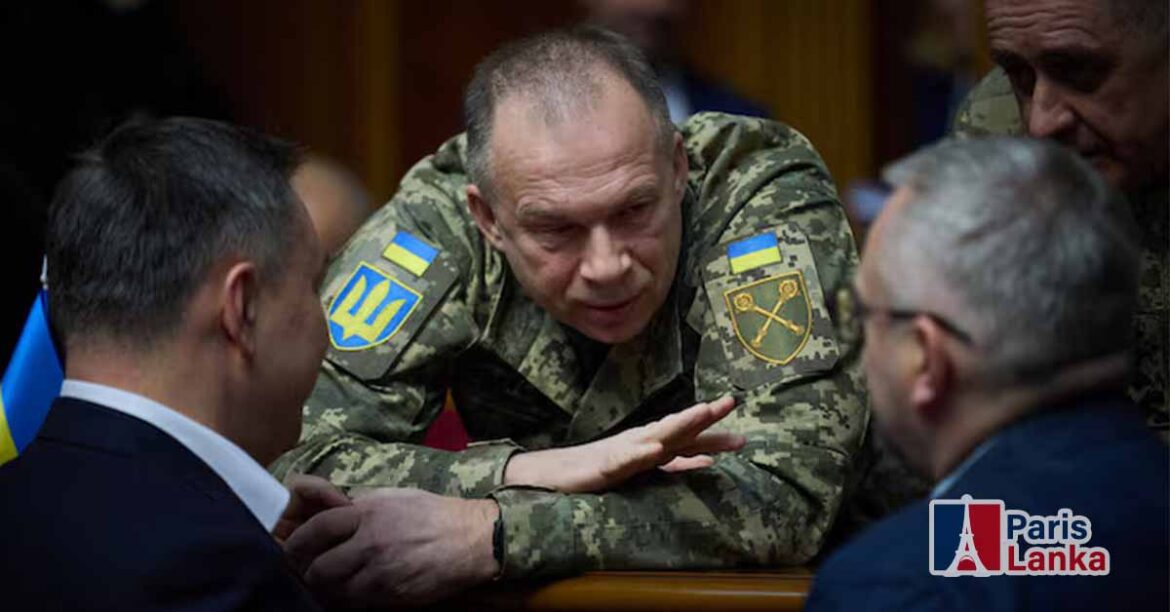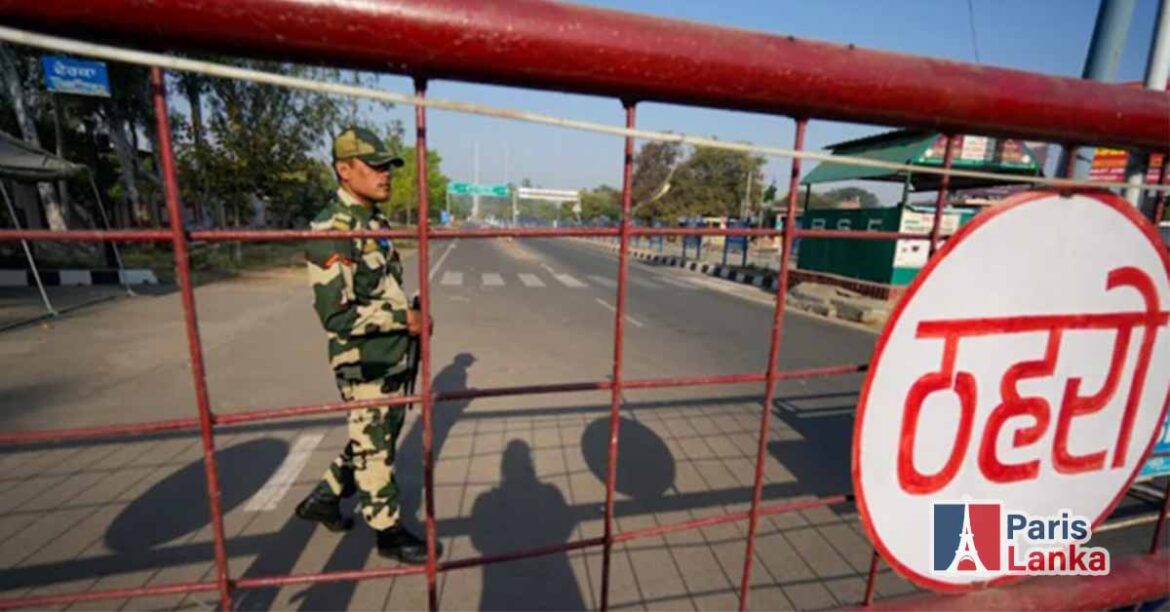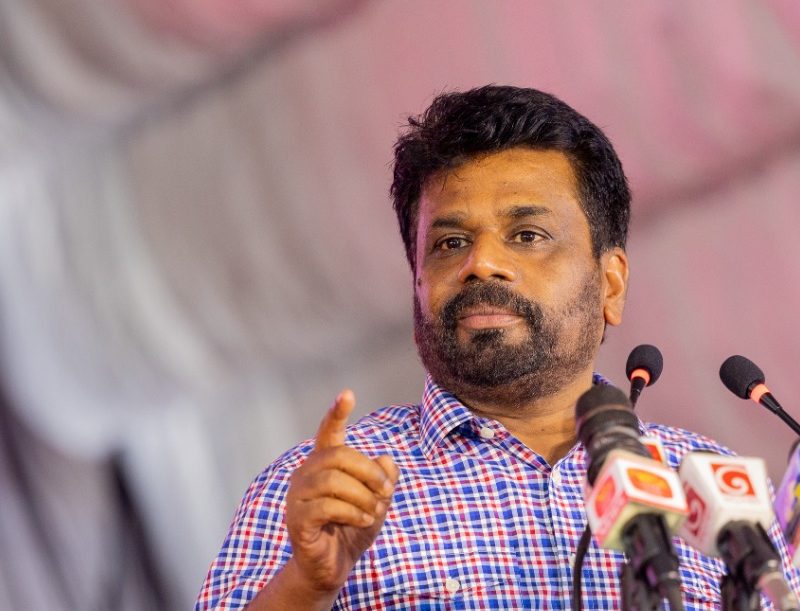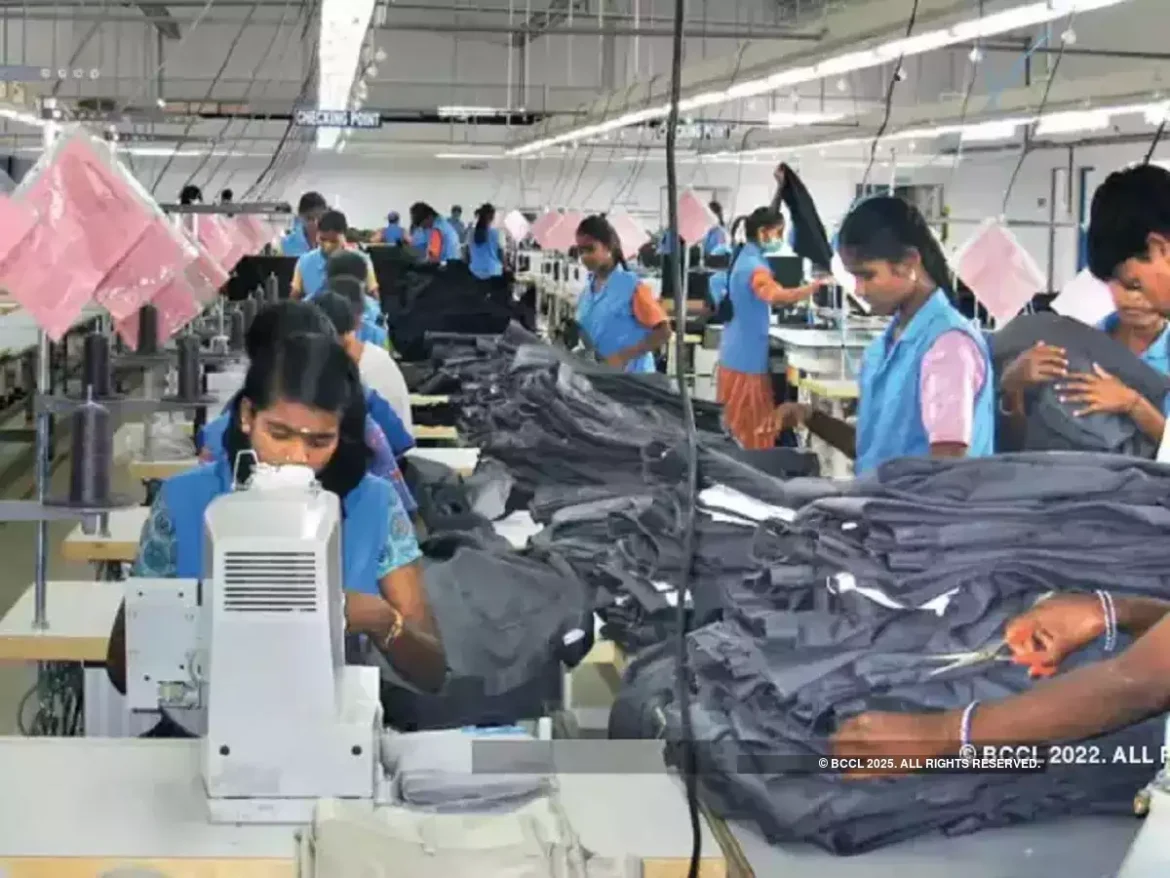With betting on the next pope frowned upon in the home of the Vatican, thousands of Italians have instead taken to playing “Fantapapa”, an online game inspired by the fantasy leagues familiar to sports fans.
International gambling companies, never shy of a marketing opportunity, are offering odds on various candidates to succeed Pope Francis when cardinals meet in a secret conclave from May 7.
In Italy, however, no licensed gambling platform is taking bets on ‘papabili’, as the papal contenders are known. Fantapapa offers an alternative for those who want some gaming before the white smoke rises.
Players create a team of 11 papal candidates and win points if a team member is mentioned prominently in media within Italy and beyond. Extra points are allocated if one of your picks is elected, with bonuses for correct guesses on other elements such as the name taken by the new pontiff.
“As of now (Cardinal Matteo) Zuppi is the preferred candidate and, notably, most of the followers on our Instagram profile are women,” Pietro Pace, one of the creators,
Zuppi, the archbishop of Bologna and the head of the Italian bishops’ conference, is a well-known figure in the country.
Pace, an AI architect at Microsoft, and Mauro Vanetti, a video game developer, started working on the platform in February when Francis went into hospital. The game, which is free to play and carries no adverts, went online shortly after he died on April 21, and the number of users approached 60,000 this week.
“There are no prizes, it’s just for fun and for the eternal glory,” Pace said.
NOVELTY BETS
Betting on the conclave is not illegal in Italy, but it is discouraged.
“In Italy there is no law expressly prohibiting betting on the election of the pope,” explained Nicola Tani, head of specialist media outlet Agipronews.
“However, the Customs Agency, which authorises the subject of bets in advance, has informally asked gaming licensees to avoid offering odds on the election of the pope, as is the case for Italian political elections,” Tani added.
For gambling companies elsewhere, bets on the pope fall into the novelty category of one-off events that cannot be judged by conventional statistics or sporting form. Sums wagered are relatively small.
On Polymarket, a blockchain-based prediction market, the “Who will be the next Pope?” market has seen a modest $10 million in total volume. By comparison, a possible Fed decision on interest rates in May has seen almost $30 million in bets.
Favourites are starting to emerge.
“There’s already plenty of speculation on the next Pope, and currently we make the Vatican Secretary of State, Pietro Parolin, our favourite at 9/4,” said Lee Phelps, spokesperson for British-based gambling group William Hill.
He added that “Luis Antonio Tagle is second in our market at 3/1 and would become the first Asian Pope in history, while Matteo Zuppi and Peter Turkson are both priced at 6/1.”
Tagle is from the Philippines. Turkson is from Ghana and would be the first Black pope in modern history.
News
Russians fighting more intensely despite ceasefire talk, Ukrainian commander says
Russian forces have significantly increased the intensity of their combat activity in eastern Ukraine, Ukraine’s top military commander Oleksandr Syrskyi said on Wednesday.
Russian President Vladimir Putin has declared a three-day ceasefire from May 8-10 to mark the 80th anniversary of the victory of the Soviet Union and its allies in World War Two. Ukrainian President Volodymyr Zelenskiy wants an immediate ceasefire lasting at least 30 days.
“Despite loud statements about readiness to cease fire for the May holidays, the occupiers (Russian forces) have significantly increased the intensity of combat actions, focusing their main efforts on the Pokrovsk direction,” Syrskyi said on Telegram.
Reuters could not independently verify the battlefield situation, including the intensity of Russian combat actions.
Russian forces, which began their full-scale invasion of Ukraine in February 2022, have for months been trying to encircle the eastern town of Pokrovsk, a logistics hub, but Ukrainian resistance has slowed their advances in the area. Moscow sees taking control of Pokrovsk as an important stepping stone to incorporating the whole of Ukraine’s Donetsk region into Russia. Moscow de facto controls most of the region.
Kyiv and its allies reject Russia’s territorial claims as illegal and accuse Moscow of prosecuting a war of colonial conquest.
Indus Waters cut, trade halted: How India’s diplomatic hammer has sparked triple crisis in Pakistan
India’s suspension of the Indus Waters Treaty and shutting the Attari-Wagah border following the heinous Pahalgam terror attack has rattled Pakistan’s already struggling economy. Islamabad, caught off-guard by the swift and sweeping measures, is now facing mounting pressure across critical sectors — agriculture, health, fertiliser supply, and access to vital water resources.
Through the now-suspended IWT, Pakistan gets roughly 80% of the waters of western rivers (Indus, Jhelum and Chenab) that flow through India into Pakistan, whereas India’s share from the eastern rivers (Beas, Ravi and Sutlej) is 20%. The suspension of the treaty will hit Pakistan way more than India.
“This is a clever, popular and populistic measure,” said Happymon Jacob, an associate professor of diplomacy and disarmament at Jawaharlal Nehru University, as quoted by New York Times.
Agriculture – Pakistan’s lifeline under threat
Agriculture is the backbone of Pakistan’s economy, contributing around 20% to its GDP and employing over 38% of its labour force. In fact, more than 80% of Pakistan’s agriculture and around a third of its hydropower generation depend on the waters of the Indus basin.
Following the suspension of the IWT, New Delhi has hinted at restricting or diverting waters from the eastern rivers (Ravi, Beas, Sutlej) for exclusive Indian use. While India cannot stop water flows immediately, but even a marginal reduction in river flow could cripple irrigation cycles in key agricultural belts like Punjab and Sindh, which depend heavily on the Indus system for crops such as wheat, rice, cotton and sugarcane.
According to US Department of Agriculture data (2015–2018 averages), the Punjab province alone accounts for 77% of Pakistan’s wheat production. Sindh contributes another 15%, while Khyber Pakhtunkhwa accounts for about 5%, and Balochistan just 3.5%. The heartland of Pakistan’s wheat belt is crisscrossed by rivers like the Chenab, Jhelum, Ravi, and Sutlej, all of which originate in India. This means any reduction or disruption in water flow would severely impact over three-fourths of Pakistan’s wheat output.
Districts along the Indus and its tributaries, including areas around Rawalpindi, Sialkot, Multan, and Bahawalpur, report the highest wheat production levels (ranging between 450 to 1,200 thousand metric tons). Central and Southern Punjab regions, shown in deep green on the map, would be particularly vulnerable if water shortages persist during critical sowing and harvesting windows.
Food prices in Pakistan are already soaring due to internal economic woes. Any shock to agriculture output, especially wheat — the staple food — will further fuel inflation, deepen poverty, and create rural unrest. A shortfall in wheat could also force Pakistan to import grains, straining its fragile foreign exchange reserves.
Medicine shortages: A brewing health crisis
With Islamabad suspending trade ties, a day after India downgraded diplomatic relations with Pakistan, its health authorities have initiated emergency measures to secure pharmaceutical supplies. Currently, Islamabad relies on India for 30-40 per cent of its pharmaceutical raw materials, including Active Pharmaceutical Ingredients (APIs) and advanced therapeutic products. Critical life-saving drugs for cancer, cardiovascular diseases, diabetes, and antibiotics were sourced from Indian manufacturers due to their affordability and quality.
India’s department of pharmaceuticals has requested the pharma exports body to prepare a list of medicines and pharmaceutical products exported to Pakistan.
Reports suggest that Drug Regulator Authority of Pakistan (DRAP) is exploring alternative sources in China, Russia and several European countries.
The country could witness shortage of vital medicines if immediate steps are not taken. The shortage of medicines will inevitably lead to a surge in prices, making essential healthcare unaffordable for a large segment of the Pakistani population. This scarcity will also fuel the growth of black markets, where unregistered and potentially substandard medicines, often smuggled from various sources, will be sold at exorbitant prices, further jeopardizing public health.
Fertiliser shortage: Food production at risk
India has historically been a major supplier of DAP (Di-ammonium phosphate) and urea, critical fertilisers for Pakistan’s major crops. The trade suspension by Pakistan means it must now seek more expensive imports from Gulf countries, China, or Central Asia.
However, this will likely involve higher transportation costs and potential delays in supply, further impacting the agricultural cycle and overall productivity. The reliance on distant suppliers also increases Pakistan’s vulnerability to global supply chain disruptions and price volatility.
A stock of gold jewellery, including gem-studded rings, necklaces, and pendants worth approximately Rs. 4.5 million, has reportedly been stolen from a safe at the official residence of the Swiss Ambassador to Sri Lanka, according to Kollupitiya Police.
Police have launched an investigation following a complaint lodged yesterday (29) by the Swiss Ambassador with the Kollupitiya Police.
The Ambassador had left for Switzerland on the 12th of this month and returned to Sri Lanka on the 27th. During her absence, five staff members had been on duty at the residence. Statements have been recorded from all five by the Kollupitiya Police.
According to the complaint, the stolen items were kept in a safe in an upstairs room of the Ambassador’s official residence. The missing items include a diamond-studded ring, an emerald-studded ring, a gold necklace, a white gold bracelet, a gold wedding ring, a ruby-studded gold ring, a gold pendant, a pair of sapphire-studded gold earrings, and an Omega Ladymatic wristwatch.
Opposition MP Harsha de Silva says Sri Lanka will have to reapply for the European Union’s Generalised Scheme of Preferences Plus (GSP+).
Taking to ‘X’, he said Sri Lanka has to reapply as the trade concession will end by 2027.
“I double checked… There is no quota to seek an increase,” he said.
MP Harsha de Silva further said Sri Lanka now has to deliver on its promises on the Prevention of Terrorism Act (PTA) and the Online Safety Act (OSA).
He made the comments following a discussion with the visiting European Union Commission delegation.
පාර්ලිමේන්තුව තුළ කලහකාරී හැසිරීමක් ප්රකට කරමින් සමාජය තුළත් අවිචාරවත් හැසිරීමක් ප්රකට කළ යාපනය දිස්ත්රික් පාර්ලිමේන්තු මන්ත්රී වෛද්ය රාමනාදන් අරච්චුනා අද (29) පස්වරුවේ විශේෂ පොලිස් කණ්ඩායමක් විසින් අත් අඩංගුවට ගත්තේය.
පොලිසිය පවසන්නේ යාපනය ප්රදේශයේදී විශේෂ පොලිස් කණ්ඩායමක් විසින් පාර්ලිමේන්තු මන්ත්රී රාමනාදන් අර්චුනා අත්අඩංගුවට ගත් බවය.
පොලිස් මාධ්ය ප්රකාශක ජ්යෙෂ්ඨ පොලිස් අධිකාරී බුද්ධික මනතුංග සඳහන් කළේ සැකකාර මන්ත්රීවරයාව අනුරාධපුර මහෙස්ත්රාත් අධිකරණය වෙත ඉදිරිපත් කිරීමට නියමිත බවය.
සැකකාර මන්ත්රීවරයා විසින් 2025 ජනවාරි 20 වනදා රාත්රී කාලයේ අනුරාධපුර තලාව ප්රදේශයේදී රථවාහන රාජකාරිවල නිරතව සිටි පොලිස් නිලධාරීන්ට සාපරාධී බලහත්කාරය පා රාජකාරියට බාධා කර තිබිණි.
පසුව අනුරාධපුර පොලීසිය මගින් මේ පිළිබඳව විමර්ශන ආරම්භ කර අනුරාධපුර මහෙස්ත්රාත් අධිකරණය වෙත කරුණු වාර්තා කරමින් නඩු කටයුතු සිදුකළේය.
අනුරාධපුර දිස්ත්රික් ලේකම් කාර්යාලයේ අද (26) පැවැති අනුරාධපුර දිස්ත්රික් සම්බන්ධීකරණ කමිටු සාකච්ඡාවේදී, පුරවැසියාට අයිතියක් වන ලෙස හා රාජ්ය නිලධාරියාට වගකීමක් වන ලෙස රාජ්ය සේවය ශක්තිමත් කිරීමට රජය පියවර ගන්නා බව ජනාධිපති අනුර කුමාර දිසානායක මහතා පැවසීය.
පවතින රාජ්ය සේවය පිළිබඳ පුරවැසියාගේ තෘප්තිමත් භාවයක් නොමැති බව පෙන්වා දුන් ජනාධිපතිවරයා පැවසුවේ, රජයේ සේවාවන් ඩිජිටල්කරණය කිරීම තුළින් පුරවැසියන්ට කාර්යයක්ෂම සේවයක් ලබාදීමට අපේක්ෂා කරන බවයි. ලබන ජූනි මාසය වන විට රාජ්ය සේවයේ නිවැරදි දත්ත පද්ධතියක් සකස් කිරීම සඳහා කටයුතු කරමින් සිටින බවත්, රාජ්ය සේවය සතු දැනට තිබෙන දත්ත ප්රමාණයේ විශාල වියවුලක් පවතින බැවින් ඒවා මත පදනම්ව නිවැරදි තීන්දු තීරණ ගැනීමේ හැකියාවක් නොමැති බවත් ජනාධිපතිවරයා පෙන්වා දුනි.
රාජ්ය සේවකයින් සඳහා සාධාරණ මූලික වැටුප් වැඩිවීමක් මෙන්ම විශ්රාමිකයින්ගේ වැටුප් විෂමතා වසර තුනක් ඇතුළත අවසන් කිරීමට අදාළ යෝජනා මෙවර අයවැයට ඉදිරිපත් කරන බවද ජනාධිපති අනුර කුමාර දිසානයක මහතා මෙහිදී අනාවරණය කළ අතර, රාජ්ය සේවය ශක්තිමත් කරන අතර රාජ්ය සේවයේ පිරිවැය කළමනාකරණය කිරීමේ අවශ්යතාව පිළිබඳවද මෙම සාකච්ඡාවේදී අවධානය යොමුව ඇත.
ජනාධිපති මාධ්ය අංශය සඳහන් කරන්නේ, රාජ්ය සේවය තුළ මේ වන විට නිර්මාණය වී ඇති අත්යාවශ්ය පුරප්පාඩු 30,000ක පමණ ප්රමාණය කඩිනමින් බඳවා ගැනීමේ අවශ්යතාව මෙම සාකච්ඡාවේදී අවධානයට ලක් වූ අතර ඊට අදාළ මුදල් වෙන් කිරීම සඳහා මෙවර අයවැයට යෝජනා ඉදිරිපත් කිරීම පිළිබඳවද මෙහිදී සැලකිල්ලට ගැණුනු බවයි.
තාක්ෂණික ක්රමවේද හේතුවෙන් සම්මුඛ පරීක්ෂණ ප්රමාද විය හැකි පුරප්පාඩු සම්බන්ධවද මෙහිදී සාකච්ඡා වූ අතර ඒකාබද්ධ රාජ්ය සේවයක් මගින් මානව සම්පත කළමනාකරණය කිරීම පිළිබඳවද අවධානය යොමු කළ අතර, අනුරාධපුර දිස්ත්රික්කයේ අධ්යාපන, සෞඛ්ය, වාරිමාර්ග, කෘෂිකර්මාන්ත, වන අලි ගැටලු ඇතුළු ක්ෂේත්ර ගණනාවක් සම්බන්ධයෙන් මෙහිදී ජනාධිපතිවරයාගේ අවධානය යොමු විය.
අනුරාධපුර දිස්ත්රික්කය සංචාරක කලාපයක් ලෙස සංවර්ධනය කිරීමට ඇති හැකියාව පිළිබඳ සාකච්ඡා කළ අතර “City Branding” ක්රමවේදය භාවිතා කර අනුරාධපුර නගරය සංචාරක ආකර්ෂණීය ස්ථානයක් බවට පත් කිරීම සම්බන්ධයෙන්ද සාකච්ඡා කෙරිණි.දේශීය සංචාරකයන් වැඩි වශයෙන් පැමිණෙන අනුරාධපුර නගරය විදේශීය සංචාරකයන් සඳහා විවෘත කිරීමට හොඳ විභවයක් තිබෙන අතර ශ්රී ලංකාවේ පළමු රාජධානිය ලෙස සහ පළමු වැව පිහිටි ස්ථානය ලෙස විදේශිකයන්ගේ ආකර්ෂණීය ස්ථානයක් ලෙස ප්රචලිත කිරීමටද අවධානය යොමුව ඇත.සමාජ ආකල්ප වෙනසක් ඇති කරමින් යහපත් සමාජයක් නිර්මාණය කිරීම සඳහා “Clean Sri Lanka” වැඩසටහන ක්රියාත්මක කිරීමේ අවශ්යතාවයද මෙහිදී ජනාධිපතිවරයා වැඩිදුරටත් පෙන්වා දුන් බවද සඳහන් වේ.
Sri Lanka’s apparel export earnings reached $4.7 billion in 2024, reflecting a 5% year-on-year (y-o-y) growth, according to the Joint Apparel Association Forum (JAAF). When combined with the country’s textile exports, the total export value surpassed $5 billion, showcasing the resilience of the industry despite local and global challenges.
Compared to the pre-pandemic benchmark of 2019, when exports were $5.3 billion, 2024 figures reflect a 10.3% shortfall. This underscores the need for focused interventions to reclaim lost ground and exceed pre-pandemic levels.
Performance across key markets revealed mixed outcomes. Exports to the US, Sri Lanka’s largest market, rose by 5.23% to $1.9 billion but remained 19.4% below 2019 levels.
Exports to the UK recorded a strong 7.65% growth, nearing pre-pandemic figures, driven by demand for ethically and sustainably manufactured garments. Growth in the EU was modest at 0.81%, highlighting challenges in a highly regulated and competitive market.
Meanwhile, exports to other destinations increased by 10.13%, reflecting successful penetration into new markets and the industry’s evolving ability to label, pack, and ship directly to third countries on behalf of customers.
To strengthen the industry’s competitiveness, localised fabric production has emerged as a priority. The Eravur Textile Zone, a 300-acre facility, is designed to house textile-dyeing, washing, knitting, and weaving plants.
This project is expected to significantly reduce production costs, save foreign exchange, and enhance Sri Lankan exports’ appeal to global buyers who demand traceability and sustainability.
JAAF Secretary-General Yohan Lawrence highlighted the significance of the Eravur Textile Zone, calling it a “lifeline” for the industry. He stressed that localising fabric production is critical to boosting competitiveness and meeting global market demands.
Analysis of the past five years reveals a gradual recovery for the sector. The pandemic caused a significant dip in 2020, with exports dropping to $4.1 billion, a 22% decline from 2019.
Exports briefly peaked in 2022 but saw setbacks in 2023 due to global inflation and reduced consumer spending. The modest growth of 5% in 2024 also reflects pricing pressures faced by the industry.
JAAF emphasizes the importance of continued collaboration between industry stakeholders and the government.
Critical areas include enhanced market access, infrastructure projects like the Eravur Textile Zone, predictable electricity tariffs, and improved operational efficiency at Colombo Port. Recent electricity tariff adjustments have been welcomed, as Sri Lanka’s energy costs remain high compared to competitors. J
AAF has advocated for energy sector reforms to adopt cost-effective generation and pass savings to consumers.
In a key policy development, Sri Lanka and Indonesia have jointly applied to the UK DCTS authorities for fabric cumulation. If approved, apparel made in Sri Lanka using Indonesian fabric could enter the UK duty-free, boosting competitiveness in that market.
Looking ahead, JAAF is optimistic about surpassing pre-2019 export levels. Strategic investments and reforms could help the industry achieve $6 billion in export earnings, solidifying Sri Lanka’s position as a global leader in quality and ethical manufacturing.
With a focus on sustainability and traceability, the sector remains poised for growth if the right measures are implemented.
Separate probe against MP Namal
The Bribery Commission yesterday informed Fort Magistrate Nilupul Lankapura (22) that it will conduct a separate investigation against former Sports Minister and MP Namal Rajapaksa regarding the alleged financial irregularities of Rs.70 million in the lease of 4.3 acres at the Krrish Transworks Square in Fort Colombo.
A Commission official informed Court that these investigations were initiated pursuant to a Court order.
The Bribery Commission stated this when the case filed in connection with the investigation being conducted by the Financial Crimes Investigation Division regarding the incident was taken up for hearing.
The Magistrate also ordered that the case filed by the Criminal Investigation Department be recalled on June 4 and if the Attorney General’s advice was received before that, she informed the Financial Crimes Investigation Division to issue notice to the defendant.
A further report regarding the incident was submitted to Court by the Criminal Investigation Department and MP Namal Rajapaksa, who has been released on bail in connection with the incident, appeared in Open Court when the case was called.
Investigations are being conducted based on a complaint submitted by Trade Minister Wasantha Samarasinghe while he was a Member of Parliament. The Financial Crimes Investigation Division has conducted an investigation into the incident following a complaint filed by the Anti Corruption Voice organisation, including Minister Wasantha Samarasinghe, to the IGP, alleging that a financial irregularity of around Rs.70 million had occurred.
A total of 3,811 new dengue cases have been identified across the country in the first three weeks of 2025, of which 45.2% – that is: 1,723 patients – have been reported from the Gampaha district, the National Dengue Control Unit said.
508 patients have been identified from the Colombo district and 105 from the Kalutara district, and there have been 2 deaths due to dengue so far this year.
The total number of dengue cases reported in 2024 is 49,873, of which 10,054 dengue cases were reported in the three months of October, November and December alone, according to data from the National Dengue Control Unit. The unit also stated that 22 health medical divisions continue to remain as dengue high-risk zones.










